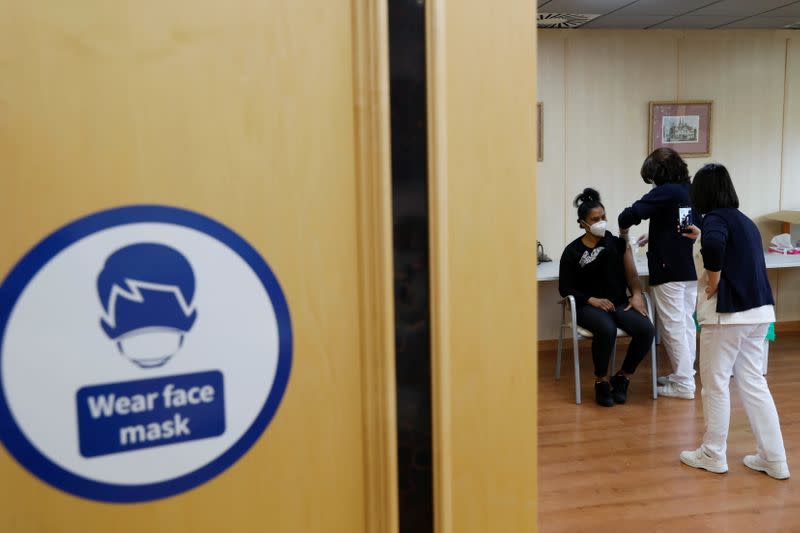Spain's recovering COVID-19 patients must wait six months for vaccine

By Nathan Allen and Inti Landauro
MADRID (Reuters) - Spain's health ministry said on Wednesday that people under the age of 55 without major health complications who have previously contracted the coronavirus will have to wait six months from their diagnosis before receiving a vaccine.
The measure, which appears to be unique in Europe, will apply to the three vaccines currently being distributed in Spain, and is provisional pending further research.
Justifying the decision to prioritise those without a history of COVID-19, the ministry said that cases of reinfection within six months were "exceptional".
A major British study published last week found 99% of participants who had previously tested positive retained antibodies for three months, while 88% still had them after six months.
"If vaccine is in short supply and they are confident that they can reliably and confidently identify previously infected people, there is some rationale to this," said Eleanor Riley, a professor of immunology and infectious disease at Britain's University of Edinburgh.
However, the time and effort involved in checking and double checking eligibility may not be worth it, she told Reuters.
People older than 55 or those with health risks that make them more vulnerable to reinfection would be exempted from the delay, the ministry said.
So far, the only people under 55 being vaccinated are healthcare professionals, according to Spain's vaccine strategy.
Spain is distributing vaccines developed by Pfizer and BioNTech, Moderna and Oxford University and AstraZeneca.
As authorities begin to inoculate a broader section of society with the recently approved AstraZeneca shot, Madrid's regional government said it would convert stadiums and other big venues into vaccination centres.
Elsewhere in Europe, several Italian epidemiologists have said it is useless to vaccinate those who have already been infected, but Rome has not taken any decision on whether to administer jabs to recovering patients.
France's public health agency believes there is no need to inoculate people who developed a symptomatic form of the disease, although those patients can still opt to take a shot three months after the onset of symptoms. And authorities in the Netherlands still recommend getting a jab after contracting the disease, a minimum four weeks after getting symptoms.
(Reporting by Inti Landauro, Emma Pinedo and Nathan Allen in Madrid and Kate Kelland in London; Additional reporting by Emilio Parodi and Richard Lough; Editing by Andrei Khalip, Giles Elgood and Alex Richardson)


